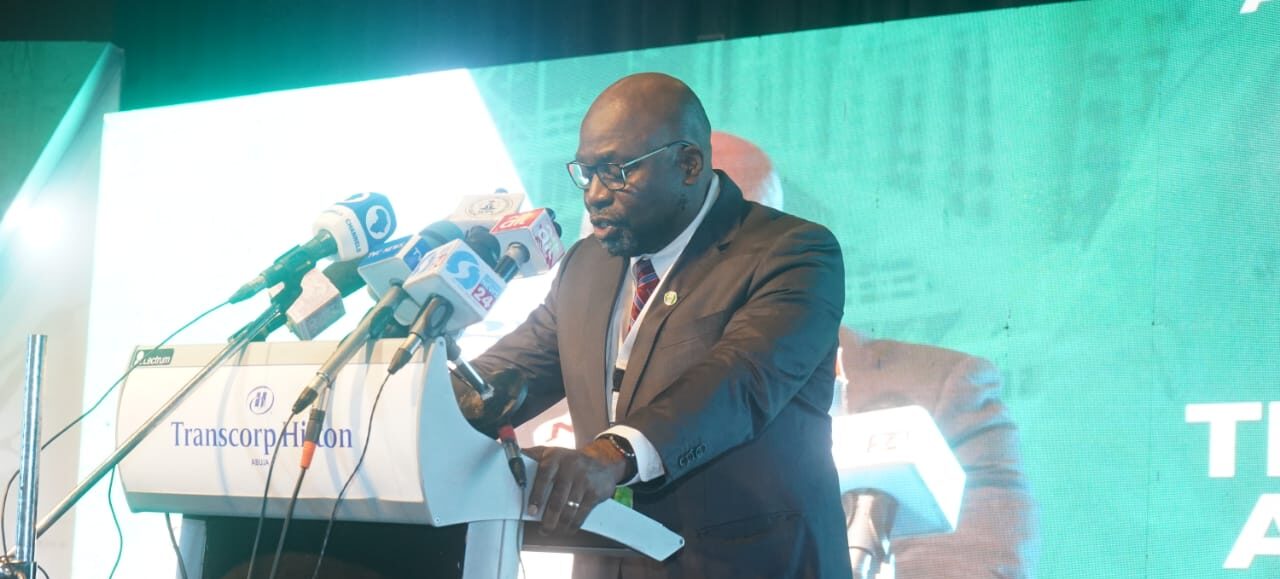The Chairman of the Independent Corrupt Practices and Other Related Offences Commission (ICPC), Prof. Bolaji Owasanoye, SAN, OFR, has advocated the deepening of transparency in the Oil and Energy Sector of the economy to reduce Illicit Financial Flows (IFFs).
He made the call at the Transparency and Accountability Summit organised by the House of Representatives’ Anti-Corruption Committee held at the Transcorp Hilton Hotel, Abuja. The theme of the Summit is “Enhancing Transparency in the Oil and Gas Sector: Challenges and Prospects”.
In a goodwill message to the Summit, Prof. Owasanoye stated that corruption and opacity of operations had undermined the benefit of the natural resource to the host communities and the country.
He identified other inhibiting factors as incompetent governance, fraudulent revenue management, and insensitive treatment of environmental and host community issues.
According to him, poor governance structure has fuelled many anomalies in the oil and gas sector including the menace of illicit financial flows (IFFs).
“Deepening Transparency in the Oil and gas Sector will reduce IFFs thereby leading to increased revenue, improved health care, education, improve infrastructure development in Nigeria, and lead to better patriotism and nationalism from the citizenry.
“If the Nigerian National Petroleum Corporation (NNPC) succeeds in the management of host community issues the presidential amnesty program should naturally fizzle out in the fullness of time,” he said.
Besides deepening transparency, the ICPC boss recommended some conscious and consistent actions to address the challenges in the sector, including audit.
“There is need for consistent and transparent audits. Recall that for years, the NNPC never published an audit of its accounts until this Administration. The audit recommendations includes: financial audit, regular physical assets audit, and process audit for continuous improvement of the process,” he noted.
He further underscored the need for review and update of contract negotiation practices.
“Many of the clauses and agreements that facilitate IFF were consciously negotiated by the Government and the NNPC line officers. Some of these negotiators were not experts in their field and so made concessions against government interest. Terms of Contracts Agreement/Clauses should be very explicit and in clear language to avoid any form of ambiguity.
“More importantly, we must discard completely confidential clauses that forbid the operators or government from disclosing terms negotiated with parties. Given the fact that these agreements are about natural resources being public patrimony and assets, confidential clauses that fuel corruption and abuse should be totally outlawed,” he recommended.
The ICPC Chairman also called for the curtailing of discretionary powers in granting incentives as well as stronger oversight of the operations in the oil and energy sector especially commercial and tax obligations of multinational corporations.
“Aggressive tax avoidance by multinational corporations is costing Nigeria much in IFFs and this must be addressed. Some corporations falsify trade records, fuel transfer pricing, inflate operational costs and retain on the payroll as expatriates – staff who work remotely but make huge emoluments claims for these, among other anomalous practices,” he added.
In fulfilling its preventive mandate, Prof. Owasanoye explained that the ICPC has built the capacity of line officers from the Ministries, Departments and Agencies (MDAs) on negotiation of agreements in sectors that facilitate IFFs notably oil and gas, trade and investment, taxation and environment.
He said, “We teach officers what to look for in agreements and commercial arrangements in the quest to trace, stop and recover diverted or stolen assets. We also focus on triggers for capital flight such as the use of arbitration clauses to undermine national development.”

